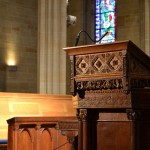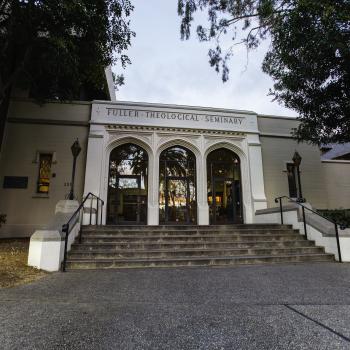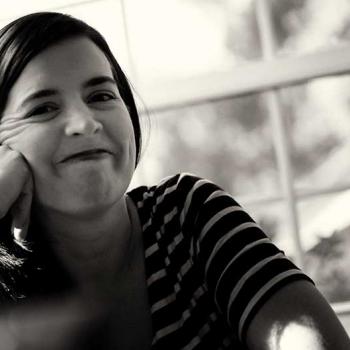By Richard J. Mouw
In his classic 1985 critique of the mass media, Amusing Ourselves to Death, Neil Postman focused with special vehemence on what he labeled the “Now… This” character of the nightly news program. Much has changed during the past three decades in the technology, format and scheduling (“24/7”) character of TV news programming. But the pattern that Postman subjected to in his stinging critique is still current.
In a speech I heard Postman deliver not long after the book appeared he illustrated his critique in a memorable way. It went something like this. Suppose you meet a friend on the street whom you had not been in touch with for a while. “So, how have you been?” you ask. “Well,” the friend replies, “yesterday was an interesting day. I got a phone call from a high school friend about our upcoming class reunion. My ten year old granddaughter scored two goals in a soccer game. The Republican candidate won the race for City Council. Right after supper my wife dropped dead in our living room of a heart attack. And then later that evening there was some light rain.”

That may seem shockingly odd, said Postman. But that is precisely the character of the typical TV news show. Without a change of tone or facial expression the reporter can go from a debate about fiscal policy in the State Senate, to a local Rotary Club speaker, to some football scores, to a weather report, and then an update about a famine in Africa—with a final humorous story about the Easter Bunny’s surprise visit to a third grade classroom—and with all of this, Postman observed, punctuated by a couple of commercials and some brief musical interludes. The worldview of television “news,” he said, is all about disconnected events of various degrees of happy, tragic and neutral. And the bizarre nature of that worldview is made plain when we imagine, he argued, the same kind of “reporting” coming from a person talking to us on a street corner.
I fully agreed with him at the time. And I still see some sense to what he was arguing. But when I thought about it more, it occurred to me that I could easily imagine something like that street corner conversation occurring when a parishioner asks a pastor, “How has it been going for you?” The pastor replies: “Well, yesterday got off to a nice start with a visit to a young couple who had just experienced the birth of their first child, a healthy nine-pound boy. Then we had a staff meeting at church. Early in the afternoon I ran a few errands, just before conducting the funeral of a forty-two year old woman who had died of liver cancer. Then after a quick supper at home, we had our men’s softball game.”
Going through days like that is, in an important sense, responding to the divine mandate to rejoice with those who rejoice, and to weep with those who weep, while also pursuing the ordinary routines of our lives as human beings. Being able to contain all of those moods and experience within one pastoral heart is not easy. But to cultivate the capacity to do so can be a marvelous process of gaining what the philosopher Hannah Arendt referred to a healthy kind of “enlarged consciousness.”
Someone told me recently that she had decided to deal with the frustration of finding a parking place in the city by asking the Lord to help her. My initial unstated reaction was to ask myself why the Creator of heaven and earth, in a world plagued by homelessness, warfare, marital breakups, tragic accidents, and the like, would want to take the time to worry about someone finding a parking place near a real estate office. But then I remembered my reflections about Neil Postman’s critique of TV news reporting.
Not that I want to defend CNN or Fox News in response to Postman’s critique of their patterns. But there are genuinely human contexts in which being able to move from celebrating to weeping to light-hearted humor and then back to weeping may be a sign of God-honoring spiritual health.
Dr. Richard J. Mouw is Professor of Faith and Public Life and President Emeritus of Fuller Theological Seminary. A philosopher, scholar, and author, prior to his two decades as president (1993–2013), he served as provost and senior vice president for four years, and as professor of Christian philosophy and ethics beginning in 1985. He has been an editor of the Reformed Journal and has served on many editorial boards, including currently Books and Culture. He is the author of 19 books.
Follow Fuller Seminary on Twitter at @fullerseminary.














